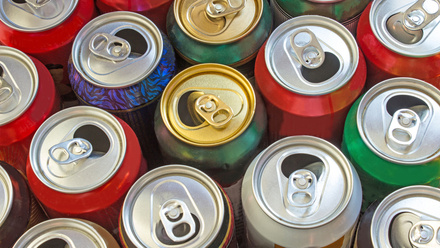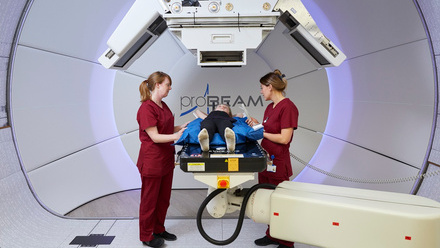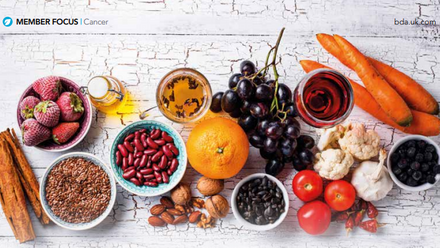Introduction
Recommendations - Food Safety
Following our literature search, which includes articles published in the last 5 years, we have gathered the following recommendations for our patient group.
Food Safety & Hygiene Guidelines
Evidence supports the use of food safety guidance including; food preparation, storage and good hygiene practices as well as being mindful of the way we cook our food. Below are some helpful tips for food safety, taken from The Royal Marsden ‘Food Safety information’ booklet (2019).
- Avoid contamination of food by ensuring you wash and dry your hands before touching or eating anything.
- Never touch your mouth or nose when preparing food. Cover any cuts on your hands before preparing food.
- Do not allow raw and uncooked foods to mix – use separate storage shelves and different chopping boards
- Sanitise hands, chopping boards, knives, and utensils using hot water after touching raw meat, fish or vegetables.
- Always cover food to prevent contamination.
- Never overload your fridge or freezer - this can increase temperature, making food unsafe to eat.
- Defrost food in the fridge, not at room temperature.
- Be aware of shared utensils such as tongs at buffets, these may have been handled by many people and may have contaminated food.
- When shopping, buy chilled and frozen foods last to limit the time they are kept at warmer temperatures.
- Avoid bruised fruit and vegetables or damaged packages or tins.
- Always check ‘use by dates’ and ‘best before dates’ before buying or eating food.
- Always keep pets away from food preparation areas as they may carry bacteria even when well.
- If storing cooked food, ensure it is cooled at room temperature before placing in fridge or freezer.
- Never refreeze thawed food.
- Avoid reheating rice and takeaway food as harmful bacteria can survive the heating process.
- When eating out, check the food hygiene rating of restaurants and takeaways, using the following links depending on location in the UK.
- https://ratings.food.gov.uk/
Food Safety Advice - Table 1
|
FOODS YOU CAN EAT |
FOODS TO AVOID |
|
CHEESE, MILK AND OTHER DAIRY PRODUCTS
|
CHEESE, MILK AND OTHER DAIRY PRODUCTS
|
|
EGGS
|
EGGS
|
|
VEGETABLES / FRUIT
|
VEGETABLES / FRUIT
|
|
FISH
|
FISH
|
|
MEAT AND POULTRY
|
MEAT AND POULTRY
|
|
OTHER
|
OTHER
|
Conclusion
Ensuring a consistent and sensible approach to food safety and food hygiene advice given during neutropenia should help minimise both the risk of food borne infection and worsening malnutrition at a time when nutritional intake can be severely compromised.
References
- Arjun Gupta, M.D., Brown, T.J., Singh, S., Sen, A., Agrawal, D., Li, H.C., Moriates, C., Johnson D.H., Sadeghi, N., 2019. Applying the ‘COST’ (Culture, Oversight, Systems Change, and Training) Framework to De-adopt the Neutropenic Diet. The American Journal of Medicine. 132(1), pp. 42-47. Available from: https://doi.org/10.1016/j.amjmed.2018.08.009
- Ball, S. Brown T. Das, A Khera, R. Khanna, S. Gupta A (2019) Effect of neutropenic diet on infection rates in cancer patients with neutropenia. A meta-analysis of randomized controlled trials. American Journal of Clinical Oncology 2019; 42: 270-274
- Borriello, S.P., Hammes, W.P., Holzapfel, W., Marteau, P., Schrezenmeir, J., Vaara, M. & Valtonen, V, 2003. Safety of probiotics that contain lactobacilli or bifidobacteria. Clinical Infectious Diseases. 36(6), pp. 775-780. Available from: 10.1086/368080
- Brown, T. Mukhija, D. Premnath, N. Venkatraman, A. Nagpal, S. Gupta, A. (2019) Dissemination of information on neutropenic diet by Top US cancer centers: Inline with evidence? Nutrition and Cancer
- Food Standards Scotland, 2022. Food safety. Available from: https://www.foodstandards.gov.scot/consumers/food-safety
- FSA, 2016. New advice on eating runny eggs-FSA. Institute of food science and technology. Available from: https://www.ifst.org/news/new-advice-eating-runny-eggs-fsa-0
- Heng, M.S., Barbon Gauro, J., Yaxley, A. & Thomas, J, 2019. Does a neutropenic diet reduce adverse outcomes in patients undergoing chemotherapy? European Journal of Cancer care. 29(1), pp. 1-8. Available from: 10.1111/ecc.13155
- NHS Inform, 2022. Eating Well in Pregnancy. Public Health Scotland. Available from: https://www.nhsinform.scot/ready-steady-baby/pregnancy/looking-after-yourself-and-your-baby/eating-well-in-pregnancy
- NHS UK , 2020 Foods to avoid in Pregnancy https://www.nhs.uk/pregnancy/keeping-well/foods-to-avoid/
- Sonbol, M.B., Jain, T., Firwana, B., Hilal, T., Deleon, T., Murad, A., Murad, M.H. & Khera, N., 2019. Neutropenic diets to prevent cancer infections: updated systematic review and meta-analysis. BMJ Support Palliat Care. 9(4), pp. 425-433. Available from: 10.1136/bmjspcare-2018-001742
- Wolfe, H., Sadeghi, N. D Agrawal, Johnson, D. A Gupta Things we do for no reason: Neutropenic Diet Journal of Hospital Medicine
Download the PDF guidance here





